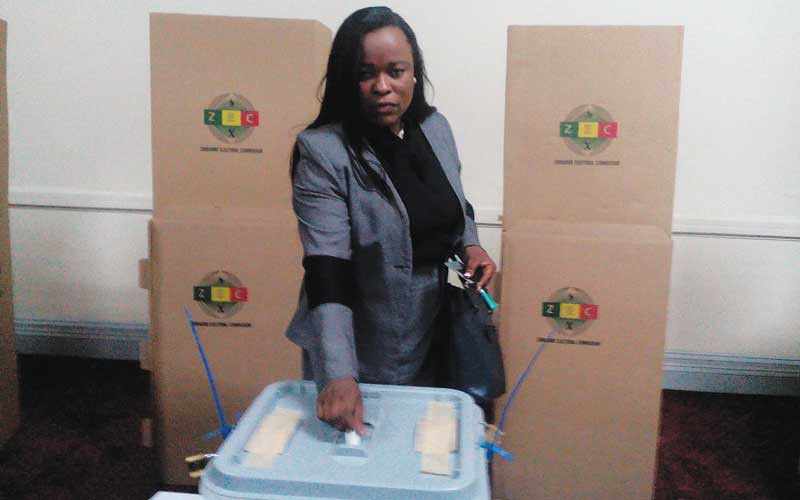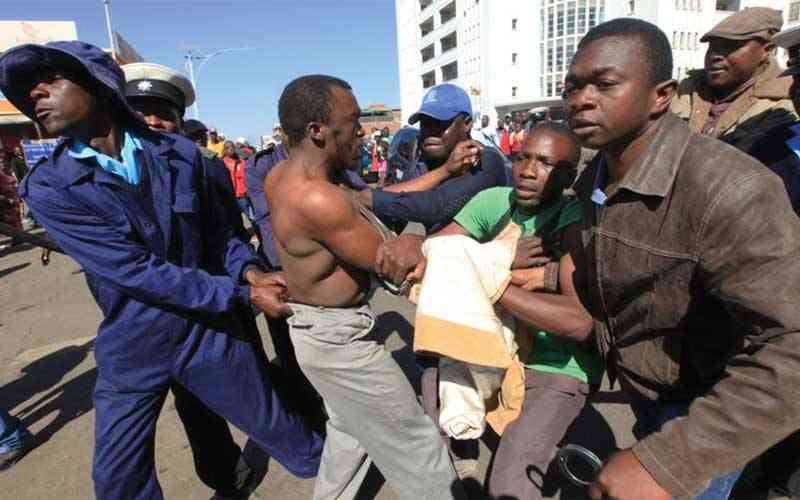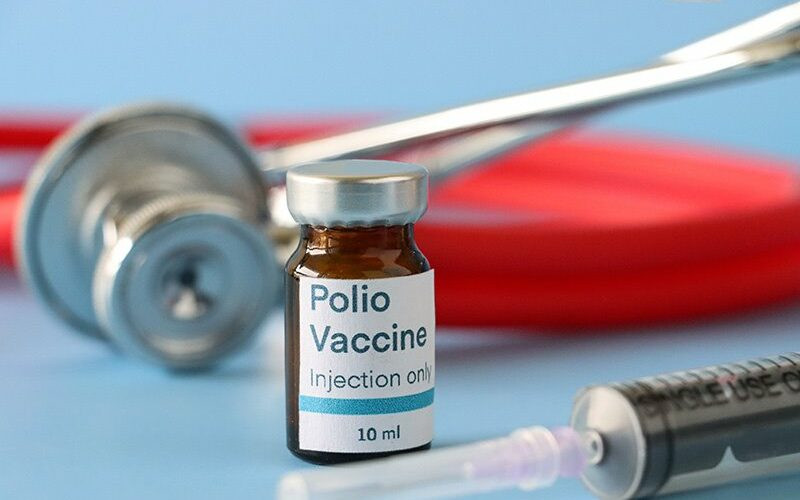
CALLS by civic society, political parties and faith groups for political players to embrace the idea of an inclusive dialogue as the solution to our political and economic crisis should be taken seriously.
A stakeholder-driven political process will lead to a free and fair plebiscite at an appropriate time.
Zimbabwe requires a bigger and inclusive arrangement that is much bigger than the Political Actors Dialogue (Polad).
The Polad idea remains noble, but there is an urgent need to broaden the engagement process if it is to serve the purpose
A Zimbabwean solution for Zimbabwe is there somewhere and can be found if Zimbabweans are given an opportunity to do so.
The church alone cannot transparently organise citizens without the input of political groups, individuals and civic organisations.
The absence of an inclusive political process in Zimbabwe may result in a spike in political violence if political leaders proceed to prioritise elections as a solution to problems bedevilling the country.
When two elephants fight, it is the grass that suffers.
- Chamisa under fire over US$120K donation
- Mavhunga puts DeMbare into Chibuku quarterfinals
- Pension funds bet on Cabora Bassa oilfields
- Councils defy govt fire tender directive
Keep Reading
Government should open its doors to suggestions and calls for a home-grown political solution to our problems as a nation.
For purposes of saving lives, another government of national unity cannot be ruled out.
A platform for an inclusive political engagement should be created by all parties in and outside government and anyone opposed to inclusivity should think twice.
For now, focus should be on dialogue, not elections. –Kurauone Chihwayi
Create an enabling environment for CSOsCITIZENS in Action Southern Africa (Ciasa) in partnership with NANGO facilitated civil society organisations (CSOs) movement building meetings in the western, southern and central regions of Zimbabwe under the theme Towards an Enhanced CSOs Operating Environment in Zimbabwe.
The platform created by Ciasa-NANGO through these movement building meetings was meant to create an ongoing discussion on the state of affairs, identifying gaps and challenges in the CSO operations within the central, southern and western regions and to have insights on CSO needs and build sectorial collaborative frameworks for the regions in confronting the Private Voluntary Organisations Amendment Bill, other legislative frameworks and policies that are aimed at shrinking the civic space.
The same meetings served to map advocacy strategies which suit the context and operating environment of the CSOs in the three regions.
In addition, the meetings provided a platform CSOs to engage in a thorough scenario mapping in the event of the bill passing into law.
Sixty CSOs attended the movement building meetings held in the three regions. They raised serious concerns over the way in which activists and human rights defenders (HRDs) were being arrested.
CSOs in the southern region gave notable examples being that of nine human rights defenders members of the Masvingo Residents Forum were on April 23, 2021 arrested by the police for protesting after the city went for two months without water.
They were charged under the section 37 of the Criminal Law (Codification and Reform) Act for participating in unlawful gathering with intent to promote public violence.
CSOs indicated that this was worrisome and evoked fear among them to operate and conduct activities as State agents were politicising their activities.
CSOs also reiterated that paying attention to such events means the operating space was no longer safe and was continuously shrinking, making it difficult for humanitarian actors to implement their activities and even conduct meetings.
In the western region, CSOs highlighted that suspected ruling party members were hijacking and disrupting their meetings, for example in December 2021, the Crisis in Zimbabwe Coalition annual general meeting that was being held at a Bulawayo hotel was hijacked by a group of suspected ruling Zanu PF party youths, who assaulted participants and vandalised property.
CSOs noted the importance of social movement building in confronting the structural challenges which included lack of co-operation by local authorities that have, in some instances, been difficult to engage especially with regards to the nitty-gritties of issues such as the signing of memoranda of understanding and continued surveillance by State security agents.
CSOs emphasised on the call for capacitation on structuring social movement building and the cycles involved which include sharing the idea of change, catalysing event, gaining the tide and the change event in the event that the civic space continue to shrink and the Bill is passed into law. –Ciasa
Change seed laws to improve Africa’s food security situationAFRICAN countries should strive to remove laws that make it easier for corporations to control seeds. Such harsh seed laws help a neo-colonial capitalist culture of exploiting farmers.
These harsh laws will make it harder for farmers to grow the nutrient-dense, locally-grown crops they want and reduce the variety of food available to citizens.
Studies show that in the case of Kenya, 90% of the seeds planted there come from informal seed systems.
Eighty percent of small-scale farmers in Kenya use informal seed systems, including sharing seeds among themselves and selling and buying seeds at local markets.
If these farmers are prohibited from using their native seeds, then their biological resources are being stolen and monopolised by corporations. The end result of this is that there will be less food produced leading to food insecurity.
Ironically, it raises chances of countries not being able to sufficiently feed themselves, with the law only worsening the situation.
A farmer selects seeds. Small-scale farmers use informal seed systems including sharing seeds among themselves and selling and buying seeds at local markets.
While the proposer and movers of the outrageous seed law are unseen, corporations cannot be ruled out since they remain the biggest beneficiaries of the ridiculous profits that come with patenting seeds.
Seed patenting is driven by multinationals and in Africa, it hurts smallholder farmers because it is expensive to get the seeds.
In addition, the new seeds produced by these corporations are usually genetically modified organisms, which means they remain a threat to the native seeds.
Such seed laws go against the Nagoya Protocol, an international agreement, which seeks to ensure that everyone gets a fair share of the benefits of using genetic resources. It became law on October 12, 2014.
Some governments have been asked to recognise smallholder farmers’ rights to indigenous seeds and change the harsh seed laws that make it illegal for farmers to share and sell seeds that are not certified or registered.
Seeds are a part of African culture and the most important part of farming. Small-scale farmers have made crops better over time by choosing the best ones, saving seeds and sharing them.
Governments need to help the farmers with their jobs as seed keepers and breeders by making laws that protect them.
By criminalising seed trade and seed sharing among farmers, they will not be able to make a living. The dark side of this is that there will be increased bio-piracy, which will reduce the genetic diversity of plants and end up hurting the ability of farming communities to deal with food insecurity and the worsening effects of climate change.
Farmers will not be able to get as many different kinds of seeds if they cannot share, trade, or sell them in the informal seed sector which will make food and nutrition insecurity in the country even worse. –Farmer
IN response to ‘Illicit gold oiling Zanu PF machinery’, BEN HORE says: Zanu PF has always retained power through unscrupulous means. This has been ongoing and will be difficult to end as long as it stays in power. I urge all people who think they have suffered enough to register to vote and participate in elections next year. Zimbabwe needs new leadership, it needs to develop and improve its economy. We cannot continue to have the same people who have failed this country continue to rule us. Let’s put this madness aside come elections next year.
IN response to ED warns secessionists, GEVEN PRIVILEDGE MARIMBA says: Stop playing god, this is not what our forefathers fought for? Are you not ashamed with the current situation in the country?
IN response to NPA apologises to doctors, FELIX MUNGURE says: The National Prosecuting Authority should put its house in order. The other day, I was watching a video about a suspect who has been on remand for the past eight years yet they are incarcerated. Why should it take that long to put the matter to rest? Surely, what if that person gets acquitted at the end of trial, it means they would have spent eight years in prison for nothing.
IN response to Charumbira vows to bring PAP to its core business, PEOPLES CHOICE PATRIOTIC SOCIETY says: Relaxation is too unAfrican a word. Removing is the right term. If removing fails, then relaxing will be the option. Remember, the original values of the Pan-Africanism state that Africa knows no boundaries. Otherwise we are happy for you Chief Fortune Charumbira and for Zimbabwe.
ISHMAEL NCUBE says: What is its core business, endorsing rigged elections?
IN response to Soiled, damaged US dollars remain legal tender: US embassy, MUKUDZEI SAKUCHERA says: We don’t have businesspeople in Zimbabwe, we have unscrupulous businesspeople.
MATTHEW MCHERI says: There is one bank in Zimbabwe which is a huge culprit when it comes to the soiled or damaged notes. It is charging 2% for it to accept soiled notes. The Reserve Bank of Zimbabwe should first fix the crisis in the banking sector.











